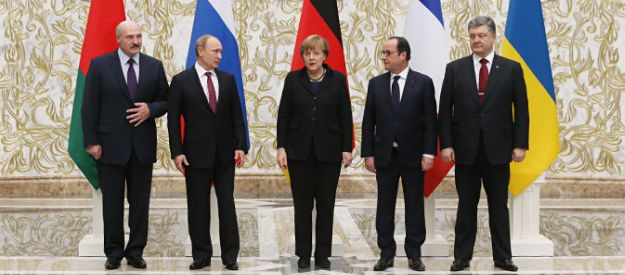The leaders of Germany, France, Ukraine and Russia have forged out an agreement for a ceasefire that will end weeks of intense fighting in eastern Ukraine (read the full text here).
Following their all-night talks on Wednesday, 11 February in Minsk, Vladimir Putin, Russia’s President informed the press that the representatives of Ukraine and separatist rebels had signed a package of measures to implement the failed ceasefire agreement reached last September.
The ceasefire will take effect from midnight on Saturday, 14 February and was agreed by Mr Putin, Petro Poroshenko, Ukraine’s President, Angela Merkel, the German Chancellor, and François Hollande, the French president.
Mr Poroshenko rejected the idea of granting autonomy to separatist regions. He instead iterated the position of re-integration into Ukraine, albeit with greater powers for the local authorities to come to force after the local elections this year.
A word of caution is due, as expressed in Mr Hollande: “An agreement has been secured, but at the same time everything can go in either direction, and the next hours will be decisive”. The same sentiment was echoed by Frank-Walter Steinmeier, the German Foreign Minister: “We too would have wished for more. However this was what the Presidents of Ukraine and Russia could, this night, agree on”.
On the details of the deal Mr Poroshenko said a 400km stretch of Ukraine’s border with Russia now controlled by the rebels would revert to Kiev by the end of 2015. Crucially the heavy weaponry would be withdrawn so that there is a 50km buffer zone between the government and the pro-Russian forces.
The Minsk agreement came in the wake of a new $17.5 bn bailout package by the IMF to help stabilise Ukraine’s finances and shattered economy.


